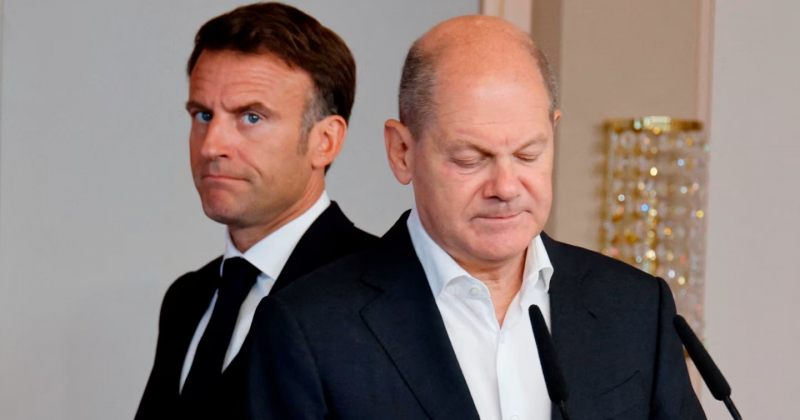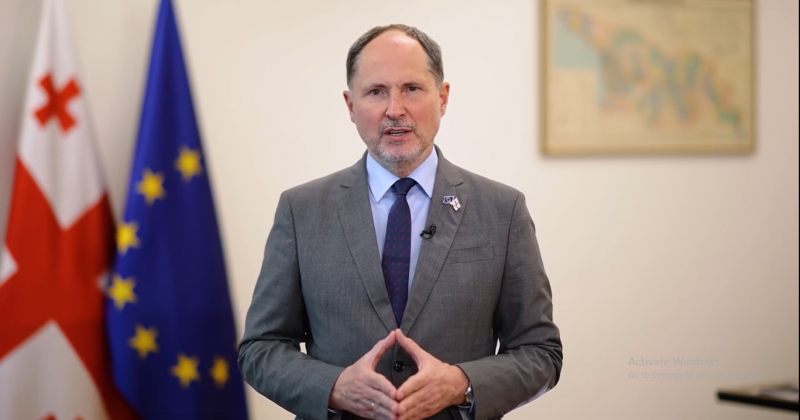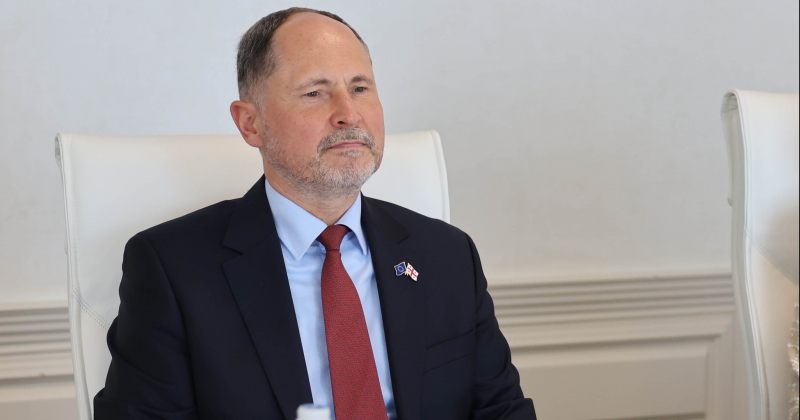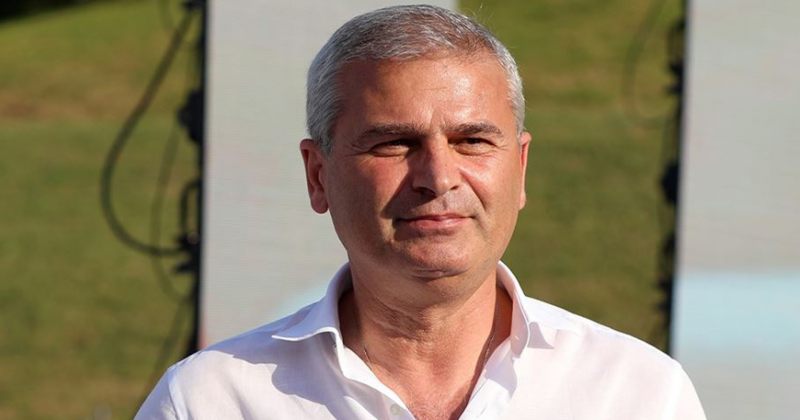Many people insist that America is in decline and that that process is inevitable. You say that the decline is the choice of the current leadership rather than inevitability. Why do you think that it’s the choice of the current leadership and not the people? Perhaps the American people want that?
Well, in democracy, you can say leadership reflects the people. But it is apparent that people mostly elected this leader on domestic issues, partly to get out of the war, but mostly on domestic issues. So I don’t think it reflects the American people.
I think we will actually test that proposition in this [upcoming presidential] election. Mitt Romney is running on a more imperial hegemonic conception of America, and we will see whether he wins or not. Now, he will win or lose probably on domestic issues. Foreign policy is always secondary in the United States.
I think we have a very liberal leadership that is very tired and wants to be more social democratic. It wants to go the way Europe went after the Second World War: You build a welfare state; you build a national health service; and you give up your empire. That’s who they are. I don’t think the American people want that – they wanted to get out of the current wars, but they don’t want decline. But it depends on who wins the election. Eight years of decline could put you on a trajectory from which you cannot recover. You cut the defense budget to the point where you can no longer sustain imperial role – you won’t sustain imperial role.
What role does Europe play in this process? During the Cold War, the United States ensured the security of Europe, and the North Atlantic Alliance was also strong. After the threat of the Soviet Union evaporated, some cracks appeared in this unity. Do you think that cracks in the North Atlantic community contribute to the decline of the U.S.?
I don’t think it contributes in any way. The European Alliance is a lot weaker because there is no threat of the size, scope and scale of the Soviet Union. Russia has always been a problem, but no more now than it has been historically. The Soviet experience was a different one.
We have had a little experiment with NATO in Afghanistan that has failed. [Article 5 was invoked for the first time ever in the Alliance’s history.] So they won’t be doing that again.
So I think that the weakening of the Alliance has nothing to do with the decline in America. It has to do purely with America’s view of itself – it was in financial panic, a recession, and elected a leader who said that we have to nation-build at home. That’s a slogan for isolationism; that’s a euphemism for isolationism. So, again, I don’t think the European connection is part of that. I don’t think whether NATO is weaker or less relevant has anything to do with our choice.
You have just mentioned that NATO failed in Afghanistan. Do you consider the Afghanistan mission a failure?
Yes, Afghanistan is a failure in the sense that we will be gone in two years and the civil war will continue. It’s not going to be like Saigon, but a failure in the sense that we will leave the problem unresolved, a lot of casualties.
Until recently, parallels had been drawn between Bill Clinton and Barack Obama. The thinking was that Obama in his second term would get tougher on foreign policy, especially given that the majority in the Congress, like at the time of Clinton, is held by the opposition party, which restricts the President’s domestic influence. But, after the “hot mic” incident…
Oh, the second term is going to be much worse. And the “hot mic” told you exactly that Obama will be more flexible. I mean, look at his stubbornness in the “reset” with Russia. What has he gotten from it? Nothing! No help on Iran; no lessening pressure on you [Georgia]; no lessening pressure on Ukraine. Look what they are doing in Syria; it’s keeping the regime alive. We’ve got a START treaty that we don’t need, but [the Russians] need. And now [the Russians] are talking about the missile defense. We already gave up part of [missile defense] in Poland. So it has always been one way.
Obama does not care. Obama thinks success is when the relations are good; you give away everything and things are calm. So he succeeded. Good relations? What does that mean? I don’t care if Russians are angry at us. What I care about it what the Russians do. And Obama cares about how Russians feel.
It’s the same with Iran. What are these negotiations about? There was one headline in one of the newspapers: “Optimism on the negotiations that seek to prevent military conflict.” Aren’t the negotiations supposed to be about preventing Iran from getting nuclear weapons? Now the objective is “to prevent military conflict”? What does that mean translated? The objective is to prevent an Israeli attack. So, it’s the U.S. government with the Iranian government trying to work out a minimal formula that would prevent Israel from attacking. But that will not prevent Iran from maintaining its nuclear program.
Many fear that, if Israel attacks, that will endanger the coalition and sanctions. It seems there is still a belief that sanctions are working…..
But that is confusing ends and means. The coalition is a means to the end, not an end in itself. The end is to stop Iran’s nuclear program. We have had a very strong coalition for five or six years now and, by the testimony of our intelligence to Congress, it has had a zero-effect on [Iran’s] nuclear program. So, why do we have a coalition? Coalition becomes a fetish and a totem, an objective in itself: “We are here to stop [Iran’s nuclear] program.”
So, if the coalition holds together and Iran still goes ahead with its nuclear program, [the coalition] has failed. This idea that we have to hold together – No, we have to do everything to stop Iran from getting a nuclear weapon. And we have not stopped them yet. The sanctions might. And it would be a good idea to strengthen them. But what they are negotiating now is that we weaken the sanctions – just where they are having the effect – in a scam deal where they [Iran] agree to enrich [uranium] only to 3.5 percent rather than 20 percent. I don’t believe a word of it. And who knows what facilities they have?
What are the chances, in your view, that Israel hits Iran and the American leadership abstains from assisting Israel?
Well, it would depend on the Iranian response. If Iran is rational, it will not provoke us. If it is irrational, it would try to close the Hormuz Strait or attack the naval base of Bahrain. In either case, they are suicidal because the U.S. Navy would flatten [Iran] and the U.S. will find itself involved in the war. The current U.S. Administration is categorically against the war, but [in this scenario] the fleet will be forced to respond.
I think that Iran will probably directly hit Israel from Hezbollah’s positions. Hamas made statements that it would not join the military attacks. So it does not necessarily mean a regional war.
In one of your columns, “It’s Not Only About Freedom,” you write that imperial regimes are ruptured when they are driven out of their major foreign outposts. You talk about Syria, saying that freeing the country from Bashar al-Assad will damage Iran as well. How is this relevant to current Russia-Georgia relations? In other words, how would Russia be affected if its former satellites join NATO?
Well, the Kremlin’s fear is a rational one. If Russia’s former satellites join the other side, integrate with the West, this does two things: First, it kills the [Russian] dream of recovering “near abroad”; and, second, [the Russians would] feel encircled. They don’t have any reason to think we want particularly to go into Russia from the territories of its former satellites. People have tried it – Napoleon and Hitler – and usually it does not work out very well.
But Russia is imperialist by nature. It was Henry Kissinger who once said that, since Peter the Great, Russia has expanded at the rate of Belgium every year for three hundred years. So they are inherently expansionist. That’s who they are. [Vladimir] Putin was reflecting Russian sentiments when he said that the biggest catastrophe of the Twentieth Century was the collapse of the Soviet Union. They lost everything they built up for three hundred years.
I don’t think this enhances their power terribly were they to control Georgia. Ukraine is a strategic asset, a major one, of course. They have now found a regime [in Ukraine] that is much friendlier to them, but I don’t see [Russians] recapturing the empire. I don’t think this makes [Russians] more of a threat because their economy is a completely extraction economy, corruption is beyond comparison, and stability is maintained by a classic KGB police state. They can last for a while, but I don’t think it will last forever. Of course, they will put pressure on Georgia, try to weaken Ukraine. But I think they are sort of contained.
You often criticize the U.S. leadership for indifference toward Eastern European allies including Georgia. What do you think: Why should the U.S. assist those countries? What is there for the U.S. in this region? There are many analysts who say that the U.S. should pursue “realpolitik” and not poke its nose in the backyard of Russia…
I don’t see any contradiction here. You are saying, “Why are we friends with these countries instead of being friends with Russia?” Well, we want to contain Russia. One way would be to have a ring of allies around it so it is contained.
The other one is America – the only nation founded on an idea. It is not founded on blood; it is not founded on history; it is not founded on race. It’s based on an idea. It is very unusual and people often don’t appreciate that. And the idea is freedom. We don’t have a statue of equality; we have the Statue of Liberty. And we feel that mission, and we realize perfectly well that we are the custodians of freedom. Now, we are not going to kill ourselves doing it. We occasionally go overboard. For example, we are not going to intervene in Congo, but, when we see a free country, we help it simply because of affinity. So Russians have this image of “great empire”; we have this image of “custodians of freedom.” And this is an important thing.
Europeans don’t understand. They think of America as a primitive moralistic nation that does not understand realpolitik. We do. But we also have the sense of obligation that they have lost. Some of them had it when they were imperial powers – the sense of obligation to rest of the world. But Europe no longer feels it.
We have the sense of obligation, and that’s what motivates us. We admire Poles. We admire Georgia standing up to the bear. You don’t have a lot of allies in the region. You’ve got sea to your back, and you’ve got Russia all around you. And who is your friend in your neighborhood? Only Azerbaijan, maybe.
But Azerbaijan is also under Russia’s pressure…
Exactly. Your small state is threatened, and we feel obliged to help. When [Senator] John McCain reacts the way he does [by declaring “today we are all Georgians”], he reflects the real feeling in the United States.
The support for integration with the West is very high in Georgia. More than two-third of the population is in favor of the NATO integration. The process is moving, but very slowly. Why should Georgia be taken into NATO, in your view?
Well, the reason we would take you into NATO is to give you implicit protection. With that step, we tell Russians, “You go to Georgia, you have attacked us.” Is that a credible threat? I don’t know. There is not a lot of stomach [in the United States] for another land war. So it would be symbolic. Would it be real? For fifty years, we told Russians, “If you cross to West Berlin, you’ve got a nuclear war.” Was that credible? We don’t know, because no one ever tested it. It has some effect. So, I think it would mean something.
But there is reluctance here to [accept Georgia into NATO] at this stage. And the reason is, it was easier to do it with Poland. Poland is a big country – it has its own defense; geographically it is surrounded by friends; it is easily accessible. It would not be only the U.S. [defending Poland], it would be all the NATO [member states] there. If Georgia was to be attacked, it would have to be the U.S. Navy that would come in. It would be us alone again. Given the Afghanistan and Iraq experiences, there is no stomach for that here.
So, I think the U.S. will leave the situation ambiguous. There is not a lot of design to take [Georgia] into NATO – depending on who is elected. Republicans will be more tough in telling the Russians that there is a red line. With Obama, you never know – he’d be flexible.
And the problem is, the more flexible the U.S. is, and more unreliable, any guarantee it makes (or lack of guarantee), the more tempted Russians are.
What will be the issues on which the results of the presidential election will depend?
The unemployment rate, gas prices, and – considering that it is going to be a dirty campaign – who has more money for a negative campaign. Assuming there will be no outbreak of war, it will be generally the economy. Obama is going to run the campaign on distractions – like “the Buffet rule,” [which would impose an] extra tax on the rich, which has no effect on anything other than divide – and he will exploit divisions in the country. Obama is going for Hispanics, the black vote, and he could win with that. So his strategy is to segment and divide the voters and pit one against the other. If the economy gets stronger, he will win. If it doesn’t, Romney has a good chance to win.
This article first appeared in Tabula Georgian Issue # 101, published 21 May 2012.






